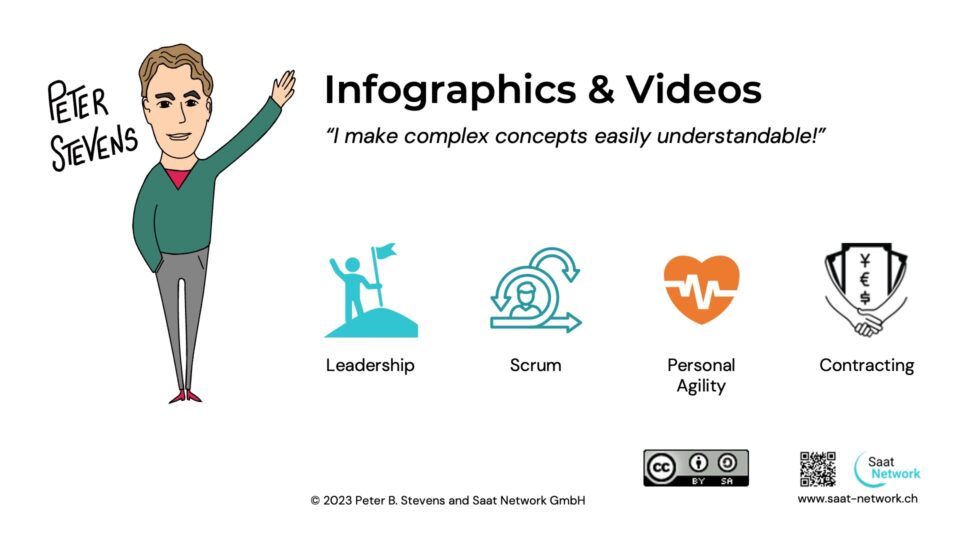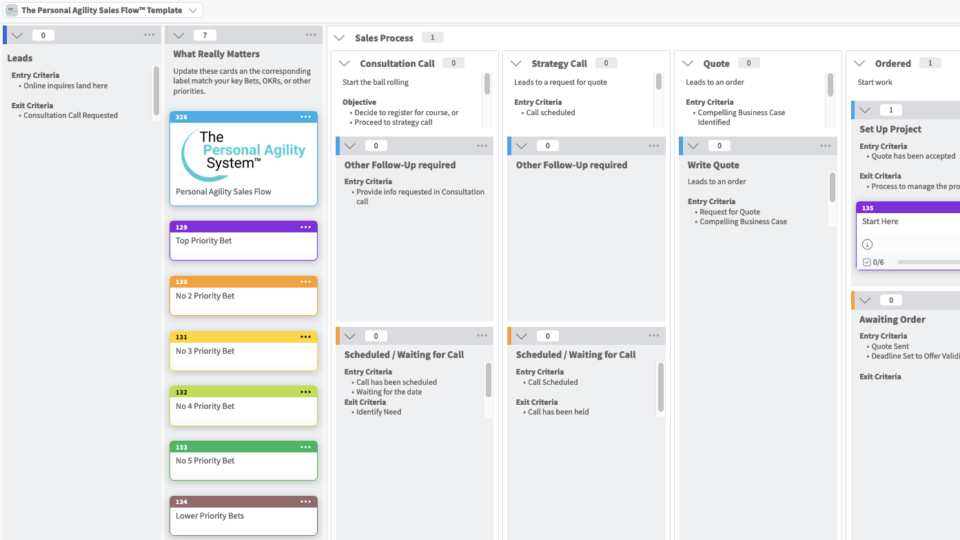Surviving Disruptive Innovation
18-04-2012My Experience Building Deep Trust
26-04-2012Recently I wrote on ScrumDevelopment:
Agile is the vanguard of a general change in management, beyond “just” software. At the moment, it is seldom on the radar screens of today’s MBA trained managers.
Two responses arrived almost simultaneously:
“No. People like Deming, Goldratt, Ohno, (and several others…) are the vanguards of general change in management (to the extent that there is yet much of a change)” – Kurt Häusler
“Well said Peter!” – Srinivas Chillara
I really do believe Agile is the vanguard in the transformation of management.
There are two levels to Agile – one is about engineering practices, the other is about values. Let’s leave the engineering practices aside for a moment. In this context I am referring to Agile as a management framework.
What management principles does Agile implement? Servant leadership, delegation, intrinsic motivation, high trust cultures, PDCA, and much more. These are all things that one routinely encounters in an Agile project and exactly what the management gurus have been saying we should do. It is not that Agile invented these things, but Agile is where these things are being systematically applied, where there is a large body of knowledge on how to do it, and where there is a lot of experience on what happens when you do it.
Agile represents the one of the few communities where these principles are systematically applied. Take Scrum, for example: Product Owners and Scrum Masters are servant leaders. Sprint Planning operates at level 6 (of 7) on Jurgen Appelo’s authority scale. The framework implements PDCA in two to four week cyles.
What other framework could qualify? Maybe Lean. Kanban I think has a strong claim. It leads you away from command-and-control, even though it can co-exist with it. But many people consider Kanban to be as much an agile framework as a lean one. Is there any other framework which can a) make this claim, and b) is widely applied?
All these modern management ideas are being implemented right under the noses of and often in the face of apathy or active resistance from classically trained managers. Steve Denning documented this thoroughly in his recent post. If you read a college textbook on management, you don’t learn about Agile, or Scrum, or Kanban. Maybe a little bit about Lean. This has to change.
So yes Agile is on the vanguard. Not by talking or teaching at prestigious business schools, but by actually doing all the things management gurus have been saying managers should do for the last 50 years. Rod Collins, former CEO of Blue Cross Federal Employees Division and author of Leadership in a Wiki World believes the next generation of top managers will come from the agile ranks, simply because these are the people who ‘get it’:
- Agile, Lean, Scrum, Kanban – all are examples effective approaches to organization in a complex, networked world. None of them are compatible with the hierarchical, command-and-control management approach that was perfected by General Motors in the 20’s. More fundamentally, thinking is not compatible with following orders.
- Beyond Budgeting – rethinking finances as the guiding instrument of corporate planning and control. BTW Professor Franz Röösli, Chair of the BB Roundtable, was an initiator of the Stoos Gathering.
- Radical Management – a rethinking of management based on agile principles. Strongly influenced by Scrum, The Ultimate Question (delighting the customer as the ultimate goal of an organization), and the Innovators Dilemma (why established companies often fail to respond to disruptive innovations). RM adds storytelling as a change leadership tool (which, when I started employing it, has done wonders for the acceptance of Scrum in the agile transitions I have coached).
- Stoos – a movement to catalyze a widespread change in management by building a common identity and networking between compatible approaches. People who identify themselves with Agile, Scrum, Kanban, Radical Management, Beyond Budgeting and others were all present at the first Stoos gathering.
Where do we go from here? A number of Stoos events are planned, most notably the Stoos Stampede and the StoosXchange. A number of Stoos Satellites have formed around the world to build local communities. Having said this, most of the resonance is coming from the Agile community. Franz Röösli and I will attend Gary Hamel’s MIX Mashup. Our immediate goal is to get Agile on management’s radar screen.
If you’re not already a member, I’d encourage you to join the Stoos network. Summon the future! Catalyze a change for the better.
[Update 20.Apr/11:44 EDT]: I expanded the section on agile principles to give some examples of what management principles Agile implement. Also invited people to suggest other frameworks which might qualify. ]
[Update 20.Apr/12:10 EDT]: …and I updated the section again to be more inclusive of Lean and especially Kanban. Stoos is about what compatible frameworks have in common, not about the rivalries between them. ]





7 Comments
Hey peter – you would probably be interested to hear about Holacracy. It's exactly that, an agile management system, so to speak.
I work with HolacracyOne, a young consulting company promoting Holacracy. Several companies run with Holacracy including us, and even though it's a real paradigm shift for many leaders, when it's in place it runs great. You can find more at holacracy.org, and there is a LinkedIn group, Applied Holacracy, not maintained by us but with cool content, where there was some recent discussion about Scrum and Holacracy.
Hi Olivier,
Thanks for this! One thing I hope will come out of Stoos is that compatible schools of thought will discover each other and say, 'Wow! Great stuff!'
Unfortunately no one from Holacracy could be present at Stoos (it was short notice), but hopefully some people will be there at the Stampede or the StoosXchange.
I believe there was quite a discussion about Holacracy on the Stoos Network linkedin group. Let's exchange invitations…
I saw this conversation on LinkedIn though did not participate in it.
I agree, there are many currents and models based on similar principles that would benefit a lot from more cross-pollination. HolacracyOne is slowly starting to invest more energy "outward", and I personally really hope that dialogues will be generated with like-minded folks.
Unfortunately (or fortunately!) Stampede and StoosXchange happen in Europe, so it's not easy for us to go. We have partners in Europe though, I'd love if they decided to join. However they happen, I look forward to the future exchanges.
Hi Oliver,
I know a lot of Americans who would like to go to Europe. How about starting conversation about a Stoos event in the US or Canada?
How about adjunct to sgatl?
That doesn't sound like a bad idea at all!
Hi Olivier, Hi Tjk
Sorry for the long delay in answering!
I posted a suggestion to the Stoos Network linked in group and the idea has met with some interest.
@Tjk – I'll be at #sgatl – we could connect for an open space…
Best,
Peter